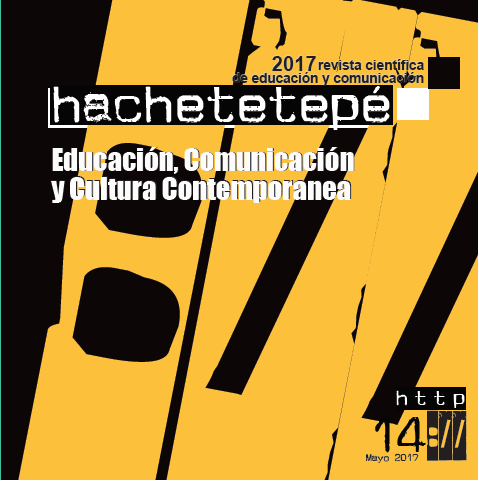Dialogue: a permanent challenge for teachers in online courses
Abstract
This work is a part of an inquiry in which we propose to evaluate the dialogía in the forums of studies of a course b-learning, motivated by the difficulty in orientating and stimulating the teachers to promote debate in the forums in order that there was a dialogía capable of constructing a narrative with contents and presence. There is perceived, ultimately, that the participation is not enough in order that the dialogía happens, it is necessary to understand the limits and the quality of the mediation, principally in the initial hours of launch of a discussion.
Keywords
Downloads
How to Cite
License

This work is licensed under a Creative Commons Attribution-NonCommercial-NoDerivatives 4.0 International License.
Those authors who have published with this journal, accept the following terms:
- They will retain their copyright and guarantee the journal the right to first publication of their work, which will simultaneously be subject to the Creative Commons Attribution License . They may be copied, used, disseminated, transmitted and publicly displayed, provided that the authorship, url, and magazine are cited, and are not used for commercial purposes. No derivative works are allowed.
- They may adopt other non-exclusive license agreements for the distribution of the published version of the work (e.g., deposit it in an institutional telematic archive or publish it in a monographic volume) provided that the initial publication in this journal is indicated.
- Disseminate your work through the Internet (e.g., in institutional telematic archives or on your website) once the manuscript is accepted, which may lead to interesting exchanges and increased citations of the published work. (See The effect of open access).
Hachetetepé. Scientific journal of education and communication does not charge a fee for the submission of manuscripts or for the publication of its articles.
References
Bakhtin, M. M. (1997). Estética da criação verbal (2 ed.). (a. E. Pereira, Trad.) São Paulo: Martins Fontes.
Bardin, L. (2011). Análise de conteúdo. Lisboa: Edições 70.
Flick, U. (2005). Método qualitativos na investigação científica. Lisboa: Monitor.
Freire, P. (1975). Extensão ou comunicação? Rio de Janeiro: Paz e Terra.
Freire, P. (1979). Conscientização: teoria e prática da libertação. São Paulo: Cortez & Moraes.
Garrison, D., Anderson, T. y Archer, W. (2001). Critical Thinking, Cognitive Presence, and Computer Conferencing in
Distance Education. The American Journal of Distance Educational, 1(15); 7-23. Disponible en: http://cde.athabascau.ca/coi_site/documents/Garrison_Anderson_Archer_Critical_Inquiry_model.pdf. Acesso em abril de 2016.
Litto, F. M. y Formiga, M. M. (Eds.). (2009). Educação a distância : o estado da arte. São Paulo: Pearson Education do Brasil.
Martins, J. L. (2014). A gestão da aprendizagem em ambiente virtual. Tese de doutoramento, Universidade do
Minho, Instituto de Educação, Braga; Portugal. .
Scorsolini-Comin, F. (2014). Diálogo e dialogismo em Mikhail Bakhtin e Paulo Freire: contribuições para a educação a distância. Educação em Revista, 30(3); 245-256.






